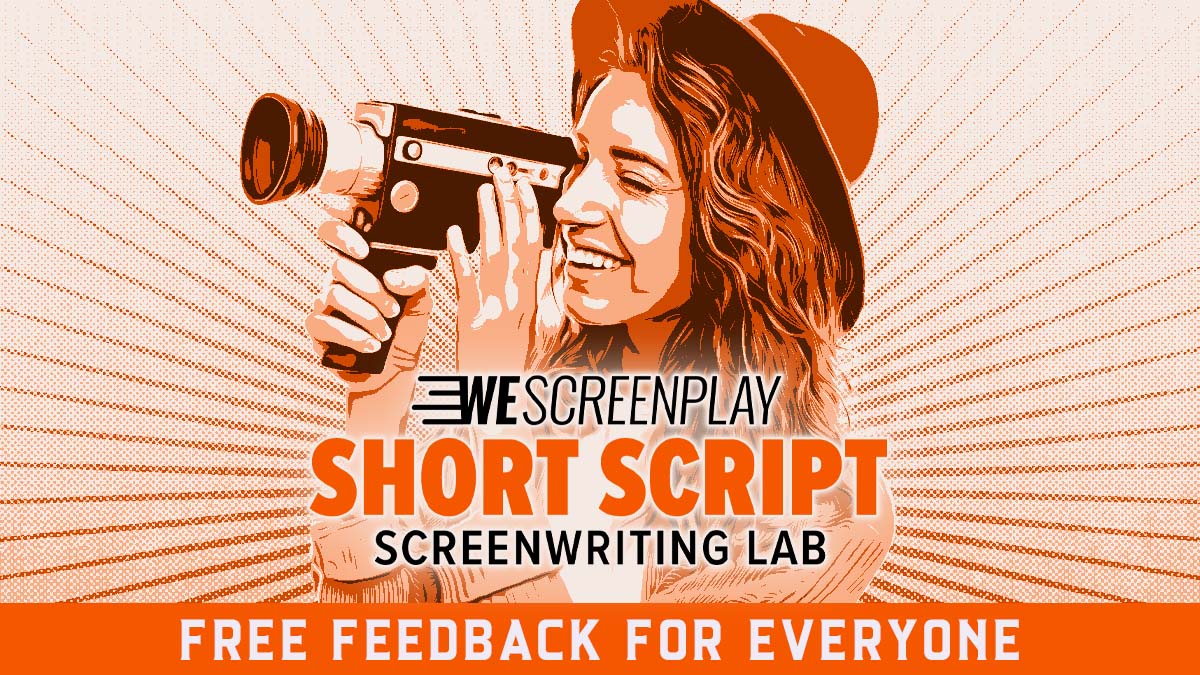
If you want to sell yourself as a screenwriter, you need to be able to write a good essay.
By now you’ve probably heard the question “why you, why now?” with regards to pitching yourself as a writer. It comes up in general meetings, in pitches, and in submission consideration for programs and fellowships, many of which include an essay portion or a personal statement as part of their package.
Being a successful writer is so much more than just being a great screenwriter — you must also be adept at selling yourself. The essays is a great opportunity to do just that.
Let’s talk about how to write a good one.
Enter the WeScreenplay Short Script Screenwriting Lab. All entries receive FREE feedback!
Tell a Great Story
In a WGA TV Fellowship Panel, Jorge Rivera (who had applied to all TV Fellowship programs five years in a row before getting into the Fox program) urged writers to convey a sense of style, personal pitch, and perspective that no one else has — “and everything in your package should fit the brand.”
If you’re submitting two half-hour comedies to the Disney General Entertainment Writing Program, then your staffing pitch should also be a comedy and your personal essay should probably have a joke or two in it.
The panel agreed that programmers want to see your writing chops. Your unique voice needs to come through in the personal essay — but this is also your opportunity to connect with the readers through some kind of emotionality.
In a UCLA Extension Class covering TV Fellowships, instructors Ron McCants and Kristine Huntley — both Disney/ABC Writing Program alumni — offer writing exercises to churn some inspiration here. Try writing 100-250 words answering each of the following questions:
- What are stories from formative moments in your life? How have they influenced your writing and the stories you want to tell?
- What inspires you to want to write for TV? (Hint: It should be stronger than your joy of TV.)
The key is to identify what makes you unique. What stories and anecdotes about yourself can you tell people to make yourself stand out?
Curate a Cohesive Brand
McCants and Huntley also insisted on a cohesive brand that ties into your writing samples. Consider your answers to the questions above and see if you can relate them to the writing samples you’re submitting. How does your own story inform your writing?
A few ways to identify your brand is to answer the following questions:
- What do you write and why?
- What kind of style and voice do you have?
- What material is in your current body of work?
Finally, look at your resume. What kind of story does it tell? What are you doing now to be interesting and skillful? What kind of contribution are you making to your community?
Be Laser-Focused on Where You Would Fit Best
In a creative career conversation, the Vice President of Creative Talent Development for Disney General Entertainment Content DMA did not mince words: “It is your job to write exceptional content.” Take your personal stories, use them to write extraordinary scripts, and get your work in front of people creating work that you are a perfect fit for.
———
Essay writing is a different skill from screenwriting — but it can open doors so it’s worth studying. Read essays (hint: or memoirs), take a course on storytelling and crafting short stories, and write. A lot.
 Shannon Corbeil is a writer, actor, and filmmaker in Los Angeles with recent appearances on SEAL Team and The Rookie. An Air Force veteran, her articles have been published in Business Insider, We Are The Mighty, and Military.com. She has written and produced hundreds of digital videos with millions of views. You can read more about her on her website or come play on Instagram and Twitter!
Shannon Corbeil is a writer, actor, and filmmaker in Los Angeles with recent appearances on SEAL Team and The Rookie. An Air Force veteran, her articles have been published in Business Insider, We Are The Mighty, and Military.com. She has written and produced hundreds of digital videos with millions of views. You can read more about her on her website or come play on Instagram and Twitter!

















